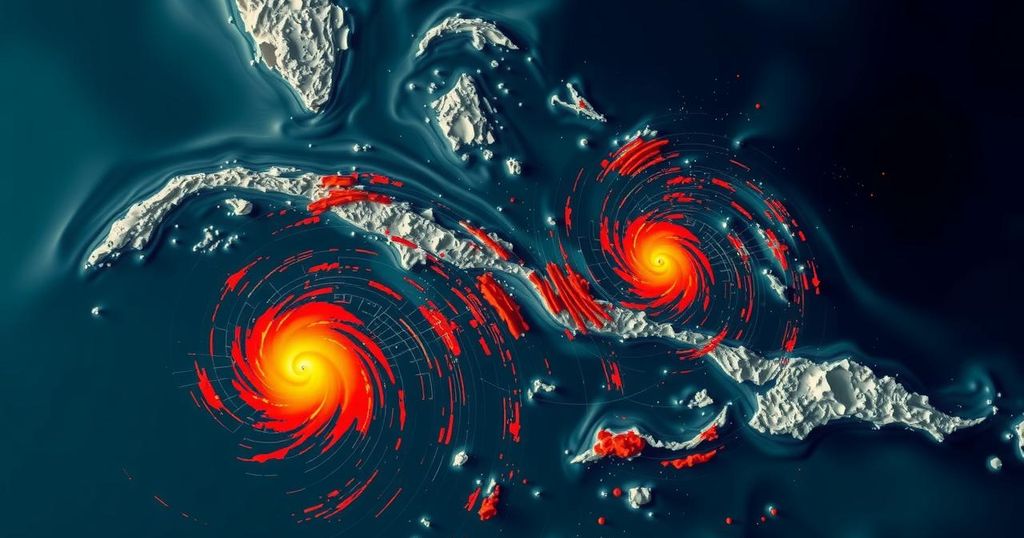A 6.8 magnitude earthquake rattled eastern Cuba after a series of hurricanes and blackouts, causing residents to flee to the streets in fear. The tremor affected significant cities like Santiago de Cuba, although no major damages or injuries have been reported. This event follows Hurricane Rafael, which left the island in disarray with power outages and extensive home destruction.
A 6.8 magnitude earthquake struck eastern Cuba on Sunday, following a challenging period marked by hurricanes and widespread blackouts. The earthquake’s epicenter was reported to be approximately 25 miles (40 km) south of Bartolomé Masó, as per the United States Geological Survey. The seismic activity was felt throughout eastern Cuba, notably in significant cities such as Santiago de Cuba, although no immediate reports of damage or injuries have emerged post-quake. Residents of Santiago experienced considerable anxiety, prompting many to seek safety outdoors. Yolanda Tabío, a 76-year-old local, described the scene, recounting how people crowded the streets and nervously took refuge in their doorways. She noted that the seismic event caused visible movement in structures, which heightened the sense of fear. Despite experiencing at least two aftershocks, she confirmed that there were no reports of significant damage among her acquaintances. This earthquake arrives amid a tumultuous period for Cuba, notably following the landfall of Hurricane Rafael on Wednesday. The Category 3 hurricane caused extensive destruction, including power outages across the island, damaging hundreds of homes, and necessitating the evacuation of thousands. Even days later, many regions remained without power. Additionally, Cuba’s ongoing energy crisis had led to recent widespread blackouts, intensifying public dissatisfaction and resulting in sporadic protests. In conclusion, the combination of the earthquake, recent hurricanes, and systemic blackouts underscores the challenges facing residents of Cuba, exacerbating their struggles and heightening public discontent. The resilience of the community in the face of continuous adversity remains a point of interest and concern.
Cuba has been facing a series of natural disasters and infrastructural crises, including hurricanes and power outages, which have severely impacted the daily lives of its citizens. The country has experienced a history of energy shortages, often resulting in widespread blackouts that exacerbate public discontent. Recent hurricanes have not only caused physical damage but have also contributed to systemic issues in energy distribution and emergency preparedness. This context is critical for understanding the challenges residents faced with the earthquake in the aftermath of such disasters.
The recent 6.8 magnitude earthquake in eastern Cuba compounded the ongoing hardships faced by the populace following hurricanes and blackouts. Despite the lack of immediate reports of damage, the quake has intensified fears among residents already grappling with recovery challenges. The events illustrate the resilience of the Cuban people and highlight the critical need for improved infrastructural support in the wake of consecutive natural disasters.
Original Source: www.independent.co.uk






